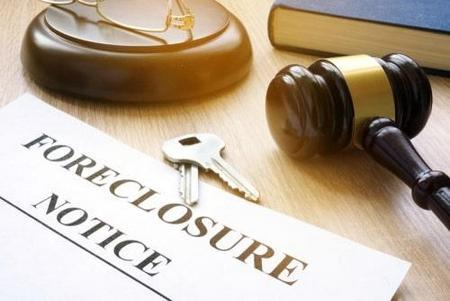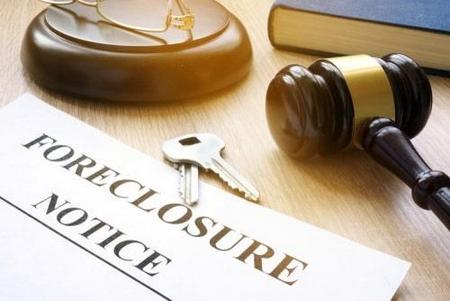1512 Artaius Parkway, Suite 300,
Libertyville, IL 60048
Call for a FREE Phone Consultation
847-549-0000
Video Consultations Also Available
 Spanish
SpanishServing Clients Across 7 Illinois Locations
Recent Blog Posts
Updated: What Right Do I Have to Reinstate My Mortgage to Avoid Foreclosure?
 UPDATE: If you are considering reinstatement as an option for avoiding foreclosure, you will want to be sure to understand your rights, the deadlines that you will need to meet, and what other options may be available. The deadline for reinstating your loan is 90 days after you were served with a foreclosure notice. By this deadline, you will be required to make up the missed payments and pay other fees and expenses. In addition to late fees, you may need to pay other costs related to foreclosure proceedings, such as attorney's fees, recording fees, court costs, and the costs of a home inspection. You will need to request a quote from your lender for the total amount that must be paid to reinstate the loan. If you disagree with the amount provided in this quote, you can send a notice of error disputing the amount. Once you have met the requirements for reinstatement, the foreclosure case will be dismissed. It is important to note that after you have exercised your right to reinstatement, you will not be able to use this form of relief for five years after the date of the dismissal.
UPDATE: If you are considering reinstatement as an option for avoiding foreclosure, you will want to be sure to understand your rights, the deadlines that you will need to meet, and what other options may be available. The deadline for reinstating your loan is 90 days after you were served with a foreclosure notice. By this deadline, you will be required to make up the missed payments and pay other fees and expenses. In addition to late fees, you may need to pay other costs related to foreclosure proceedings, such as attorney's fees, recording fees, court costs, and the costs of a home inspection. You will need to request a quote from your lender for the total amount that must be paid to reinstate the loan. If you disagree with the amount provided in this quote, you can send a notice of error disputing the amount. Once you have met the requirements for reinstatement, the foreclosure case will be dismissed. It is important to note that after you have exercised your right to reinstatement, you will not be able to use this form of relief for five years after the date of the dismissal.
How to Address Title Issues When Buying or Selling a Home
 A residential real estate transaction can be very complicated, and both buyers and sellers will need to meet multiple different types of requirements to ensure that ownership of the property can be transferred on the closing date. In some cases, issues related to the home’s title may be uncovered, and these will need to be dealt with before the transaction can be completed. By working with an experienced real estate attorney, buyers and sellers can determine their best options for addressing these concerns.
A residential real estate transaction can be very complicated, and both buyers and sellers will need to meet multiple different types of requirements to ensure that ownership of the property can be transferred on the closing date. In some cases, issues related to the home’s title may be uncovered, and these will need to be dealt with before the transaction can be completed. By working with an experienced real estate attorney, buyers and sellers can determine their best options for addressing these concerns.
Resolving Property Liens
A lien gives a person or organization the right to foreclose on a property if a debt is not paid. The most common liens are mortgages, and in these cases, lenders will release their claim to the property when the loan is paid off during the sale of the home. However, other types of liens may exist that may prevent the sale from being completed. These include:
How Can I Avoid a Deficiency Judgment During the Foreclosure Process?
 When a family experiences financial difficulties, they may be unable to make mortgage payments, which may cause their lender to begin the process of foreclosure. While the possibility of losing a home can be hard enough for a family, in some cases, they may be required to make additional payments even after the foreclosure process is completed. If the sale of a home during foreclosure does not fully cover the amount owed on the mortgage, a lender may pursue a deficiency judgment against the borrower and attempt to collect the remaining amount. However, borrowers have a number of options that can help them avoid a deficiency judgment and additional financial obligations.
When a family experiences financial difficulties, they may be unable to make mortgage payments, which may cause their lender to begin the process of foreclosure. While the possibility of losing a home can be hard enough for a family, in some cases, they may be required to make additional payments even after the foreclosure process is completed. If the sale of a home during foreclosure does not fully cover the amount owed on the mortgage, a lender may pursue a deficiency judgment against the borrower and attempt to collect the remaining amount. However, borrowers have a number of options that can help them avoid a deficiency judgment and additional financial obligations.
Options for Avoiding Deficiency Judgments
The best way to eliminate the possibility of a deficiency judgment is to stop the foreclosure process altogether. There are a variety of foreclosure defense strategies available, including negotiating mortgage loan modifications that will allow a borrower to become current on their mortgage and continue making payments. However, if foreclosure cannot be avoided, borrowers may have other options for avoiding further liability, including:
How Can I Qualify for a Mortgage Loan Modification?
 Any family can experience financial difficulties that cause them to be unable to pay some or all of their ongoing expenses. Those who are struggling to make ends meet may face the possibility that they could default on their home mortgage, which could result in foreclosure. Fortunately, families in these situations have options, including applying for loan modifications that may reduce the amount of their payments and ensure that they can cover these and other regular costs. Homeowners will want to understand their options for modifying a mortgage loan and the steps they can take to ensure that these modifications will be approved by their lender.
Any family can experience financial difficulties that cause them to be unable to pay some or all of their ongoing expenses. Those who are struggling to make ends meet may face the possibility that they could default on their home mortgage, which could result in foreclosure. Fortunately, families in these situations have options, including applying for loan modifications that may reduce the amount of their payments and ensure that they can cover these and other regular costs. Homeowners will want to understand their options for modifying a mortgage loan and the steps they can take to ensure that these modifications will be approved by their lender.
Applying for Mortgage Modifications
There are multiple types of modifications that may be available to ensure that a homeowner can continue making mortgage payments. The loan’s interest rate may be lowered, or a loan may be converted from an adjustable-rate mortgage to one with a fixed interest rate. The term of the loan may be extended, allowing it to be paid off through lower payments over a longer period of time. In many cases, it is in a lender’s best interests to work with a borrower, since they will be likely to suffer financial losses if they need to foreclose on a home and place it up for sale.
What Is the Process Followed During a Home Foreclosure?
 Homeowners who encounter financial difficulties can sometimes struggle to make mortgage payments. Unfortunately, if a person defaults on their mortgage, their lender may begin foreclosure proceedings, which could ultimately result in the loss of their home. Those who are having trouble meeting their financial obligations will want to understand the foreclosure process and the potential defense strategies that may be available.
Homeowners who encounter financial difficulties can sometimes struggle to make mortgage payments. Unfortunately, if a person defaults on their mortgage, their lender may begin foreclosure proceedings, which could ultimately result in the loss of their home. Those who are having trouble meeting their financial obligations will want to understand the foreclosure process and the potential defense strategies that may be available.
Steps Followed in a Foreclosure
A homeowner will be considered to have defaulted on their mortgage if they fail to make payments on time or in full. After the first missed payment, a person may receive notification from their lender that they will be charged late fees, and after a second missed payment, the lender will usually advise the borrower that they may face legal action if they do not become current on their payments. After a third missed payment or delinquency of at least 90 days, the lender may contact the homeowner letting them know that they will be beginning foreclosure proceedings. This process will involve the following steps:
What Closing Costs Will I Need to Pay When Buying a Home?
 If you are planning to buy a new home, you will need to address a wide variety of issues, including securing financing and resolving any concerns uncovered during a home inspection. As you work to complete the necessary requirements to obtain approval for a home loan, you should be sure to understand the various costs that you may be required to pay at the time of your home closing. This can help you avoid any unexpected financial issues and ensure that you will be able to move into your new home without any problems.
If you are planning to buy a new home, you will need to address a wide variety of issues, including securing financing and resolving any concerns uncovered during a home inspection. As you work to complete the necessary requirements to obtain approval for a home loan, you should be sure to understand the various costs that you may be required to pay at the time of your home closing. This can help you avoid any unexpected financial issues and ensure that you will be able to move into your new home without any problems.
Understanding Closing Costs
There are a variety of services performed when finalizing a mortgage, and homebuyers will usually be required to pay the related costs before they can complete the closing process and take ownership of the property. Closing costs may include:
What You Need to Know When Buying a Home Through a Short Sale
 If you are planning to buy a home, you will be looking for the best ways to find a property that meets your needs and that you can afford. In some cases, sellers may be looking to complete a short sale in which they will sell their home for less than the total amount owed on their mortgage. While this type of arrangement may provide some savings, buyers should be aware of the potential issues that may arise during this type of transaction, as well as the unexpected costs or delays they may encounter.
If you are planning to buy a home, you will be looking for the best ways to find a property that meets your needs and that you can afford. In some cases, sellers may be looking to complete a short sale in which they will sell their home for less than the total amount owed on their mortgage. While this type of arrangement may provide some savings, buyers should be aware of the potential issues that may arise during this type of transaction, as well as the unexpected costs or delays they may encounter.
3 Potential Drawbacks of Buying a Short Sale Home
While you may be able to save some money when purchasing a home sold through a short sale, this does not mean that you will pay less than the property is worth. During a short sale, a lender will usually perform an appraisal of the property, and the purchase price of the home will be based on the fair market value as compared to other homes in the area. You should also be aware of the following issues that may arise during a short sale:
How to Address Hazardous Materials and Substances When Selling a Home
 If you are planning to sell your home, you will need to deal with a wide variety of financial and personal concerns. In addition to looking for a new home, preparing to move, and obtaining financing, you will want to make sure your house is in a good condition so it can fetch an appropriate price when it is placed on the market. While you may be prepared to perform some repairs and make some improvements, you should also be aware of any safety issues, toxic substances, or hazardous materials that may need to be disclosed or remediated during the home closing process.
If you are planning to sell your home, you will need to deal with a wide variety of financial and personal concerns. In addition to looking for a new home, preparing to move, and obtaining financing, you will want to make sure your house is in a good condition so it can fetch an appropriate price when it is placed on the market. While you may be prepared to perform some repairs and make some improvements, you should also be aware of any safety issues, toxic substances, or hazardous materials that may need to be disclosed or remediated during the home closing process.
Resolving Issues Related to Hazardous Substances
You may already be aware of certain safety concerns in your home, or some of these issues may be uncovered when a home inspection is performed. You are typically required to disclose any known health hazards, and you and the buyer may determine how to address any concerns that are found during an inspection. Some hazardous substances or materials that may affect the sale of your home include:
Are Tenants and Landlords Eligible for Emergency Rental Assistance?
 The COVID-19 pandemic has had a huge impact on the U.S. economy. In addition to affecting the real estate market, it has led to job losses and reduced income for many people. This has caused some residential tenants to be unable to pay rent, which has also led to difficulties for many landlords, since they may not be able to make mortgage payments or cover other expenses. While lease modifications may help landlords and tenants address these issues, they may also be able to receive government aid to assist in paying the rent that is owed.
The COVID-19 pandemic has had a huge impact on the U.S. economy. In addition to affecting the real estate market, it has led to job losses and reduced income for many people. This has caused some residential tenants to be unable to pay rent, which has also led to difficulties for many landlords, since they may not be able to make mortgage payments or cover other expenses. While lease modifications may help landlords and tenants address these issues, they may also be able to receive government aid to assist in paying the rent that is owed.
Emergency Assistance for Tenants and Landlords
The federal government and multiple states have placed a moratorium on evictions for residential tenants, and this moratorium has been repeatedly extended as the coronavirus pandemic has continued to affect people and families. While landlords are currently unable to evict tenants, any unpaid rent will continue to be owed. To address this issue, a recent economic stimulus bill passed by the federal government created the Emergency Rental Assistance Program, setting aside $25 billion to be used to help tenants pay past-due rent and address ongoing difficulties in making rent payments.
What Should Be Included in a Real Estate Purchase Contract?
 A residential real estate transaction usually begins when a prospective buyer places an offer on a home and the seller accepts their offer. Once a purchase price is agreed upon, the parties will sign a purchase contract, and they will then work to complete all requirements that must be met before the closing date on which the transaction will be completed. Those who are buying or selling a home will want to understand the terms that will be included in their purchase contract, and by working with an experienced real estate attorney, they can make sure their rights will be protected throughout their transaction.
A residential real estate transaction usually begins when a prospective buyer places an offer on a home and the seller accepts their offer. Once a purchase price is agreed upon, the parties will sign a purchase contract, and they will then work to complete all requirements that must be met before the closing date on which the transaction will be completed. Those who are buying or selling a home will want to understand the terms that will be included in their purchase contract, and by working with an experienced real estate attorney, they can make sure their rights will be protected throughout their transaction.
Terms of a Real Estate Purchase Agreement
A purchase agreement is a legally binding contract between the buyer and seller. It will include identifying information about the parties, a description of the property being purchased, and the planned closing date, as well as any details about when the buyer will take possession of the property. The parties may also negotiate other terms that should be included in the contract, such as:
 Stop Foreclosure
Stop Foreclosure
















